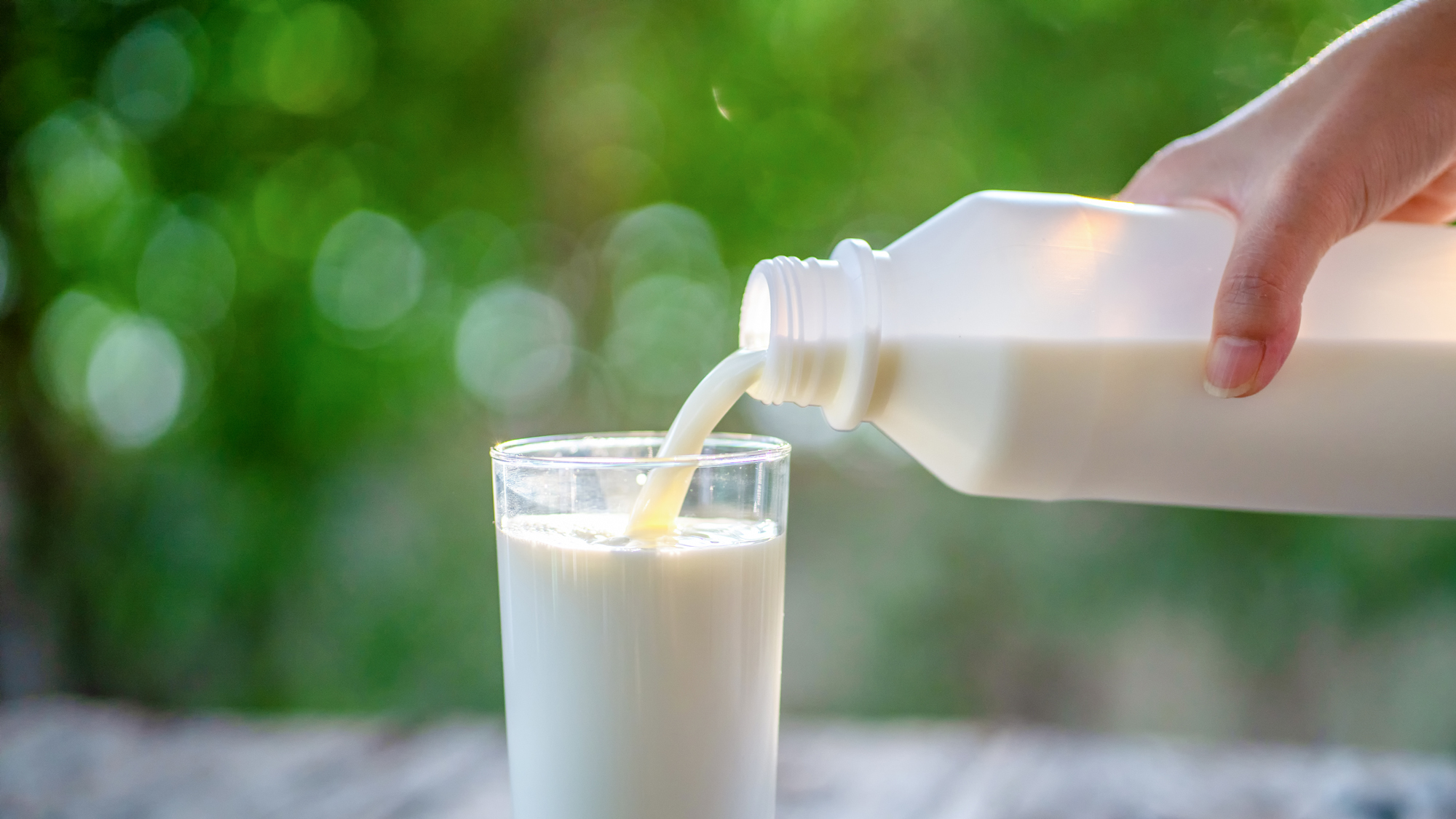Does drinking milk really make your bones stronger? Science weighs in
There's growing evidence that the popular dairy drink isn't the bone-promoting remedy we were promised


Start your week with achievable workout ideas, health tips and wellbeing advice in your inbox.
You are now subscribed
Your newsletter sign-up was successful
According to popular belief, drinking cow's milk makes your bones stronger. This is so ingrained in us that it's assumed to be a fact, partly thanks to campaigns like the infamous 'Got Milk?' ads. As a result, you'll find milk in many kid's diets and as a core component of various post-workout meal plans.
However, researchers are beginning to uncover a startlingly different effect of drinking milk - brittle bones. This runs counter to everything we thought we knew, but, fortunately, many of the best protein powders are plant-based, with no dairy products, and can be mixed with water for similar muscle-building effects.
The study recruited 96,000 participants and followed them across 22 years to examine the effects of milk consumption on our bones. Of particular importance was the quantity of milk consumed between the ages of 13 and 18, when our bodies are still developing.

Notably, the data showed that for every additional glass of milk as teenagers, men were at 9% more risk of hip fracture later in life. However, there were no links between teenage milk consumption and hip fractures found for women.
Since the 1950s, milk has been considered an essential part of a balanced diet. Over the following decades, fewer people purchased milk, leading to a decline in sales and a dip in the fortunes of various US-based dairy businesses.
In the early 1990s, an organization formed to promote milk products helped create the Got Milk? campaign. According to a presentation prepared by researchers at the University of Berkley, the ads were designed to associate milk with a desirable lifestyle.
One of the more memorable Got Milk? segments involves a teenage body saying that milk is for babies and referring to his neighbor, Mr. Miller, who never drinks milk. We then cut to the elderly and frail-looking Mr. Miller in his garden. When he tries to lift a wheelbarrow, his arms fall off.
Start your week with achievable workout ideas, health tips and wellbeing advice in your inbox.
We're often told that drinking milk develops stronger bones due to its calcium content, especially since we need calcium in our diet and our bodies can't produce it. Despite this, a systemic review of published studies found no evidence that increased calcium intake prevents bone fractures.
Separately, a study looking at the effects of calcium supplements in children did not affect height, another supposed benefit of milk. It's worth considering the purely monetary motivations behind the Got Milk ads.

In recent years, the Physicians Committee for Responsible Medicine has even explicitly stated that "research shows that dairy products have little or no benefit for bones." Instead, they recommend exercise as one of the best ways to increase bone density.
Similarly, they note that Vitamin D plays a vital role in bone strength, just one of the many reasons Vitamin D is important for good health. Fortunately, 10 to 15 minutes spent outdoors in the sun is enough to get your recommended daily intake.
However, if you need a top-up, many of the best vitamins for women over 50 contain Vitamin D. So consider picking up a pack, especially during the darker winter months.
If all of this has made you reconsider dairy as a core part of your diet, start by perusing our best vegan cookbooks guide. There's still plenty of benefits to be had in some high-quality animal products, like lean cuts of meat being high in protein, iron, tryptophan and other beneficial micro and macronutrients – but if your diet is high in dairy, it might be time for a rethink.

James is a London-based journalist and Fitness Editor at Fit&Well. He has over five years experience in fitness tech, including time spent as the Buyer’s Guide Editor and Staff Writer at technology publication MakeUseOf. In 2014 he was diagnosed with a chronic health condition, which spurred his interest in health, fitness, and lifestyle management.
In the years since, he has become a devoted meditator, experimented with workout styles and exercises, and used various gadgets to monitor his health. In recent times, James has been absorbed by the intersection between mental health, fitness, sustainability, and environmentalism. When not concerning himself with health and technology, James can be found excitedly checking out each week’s New Music Friday releases.